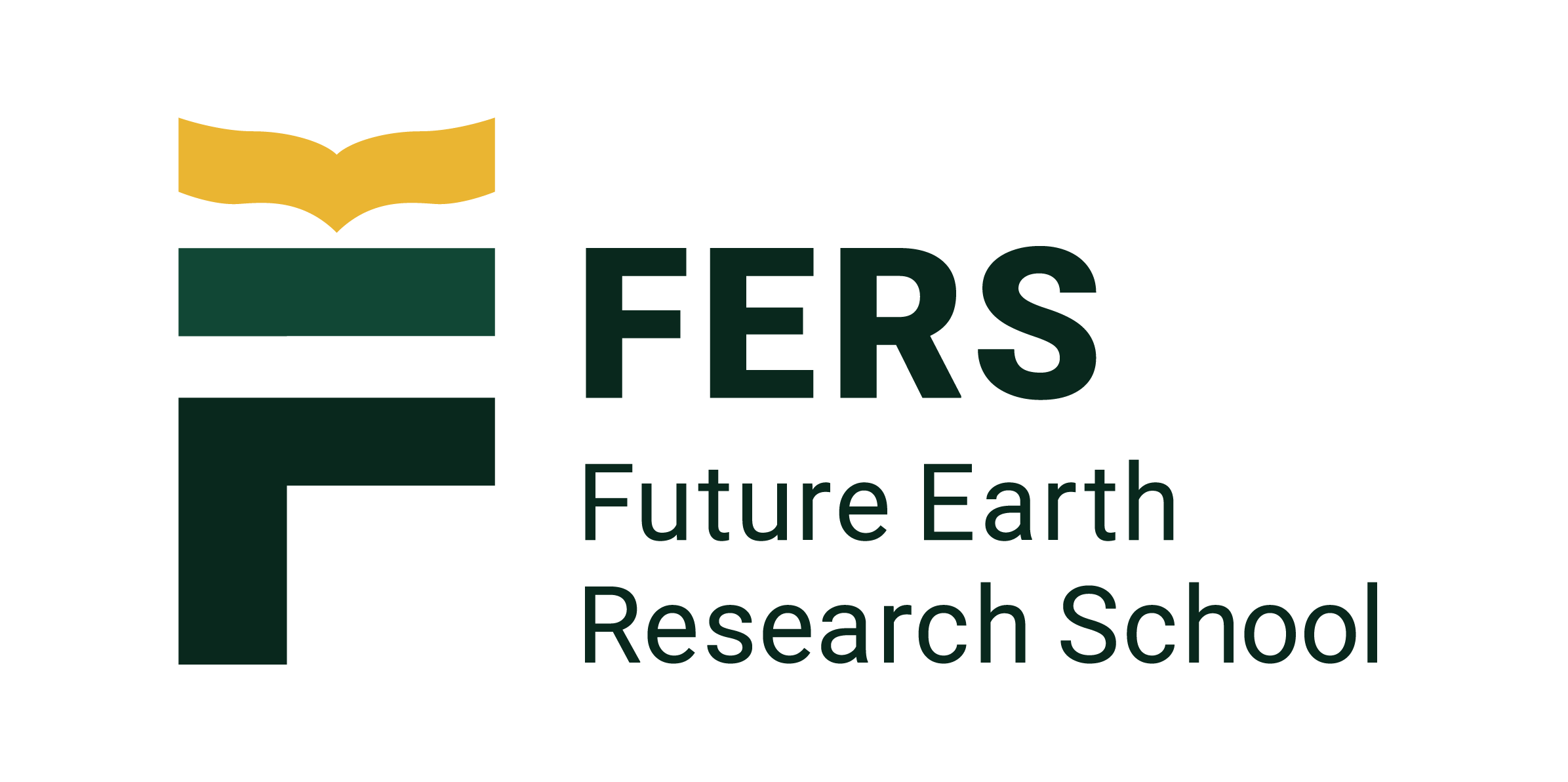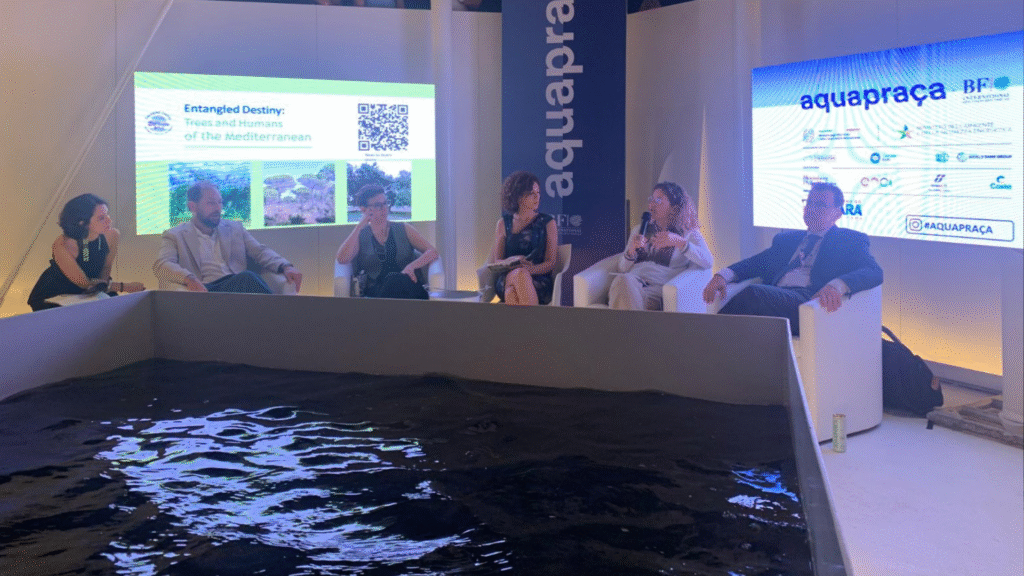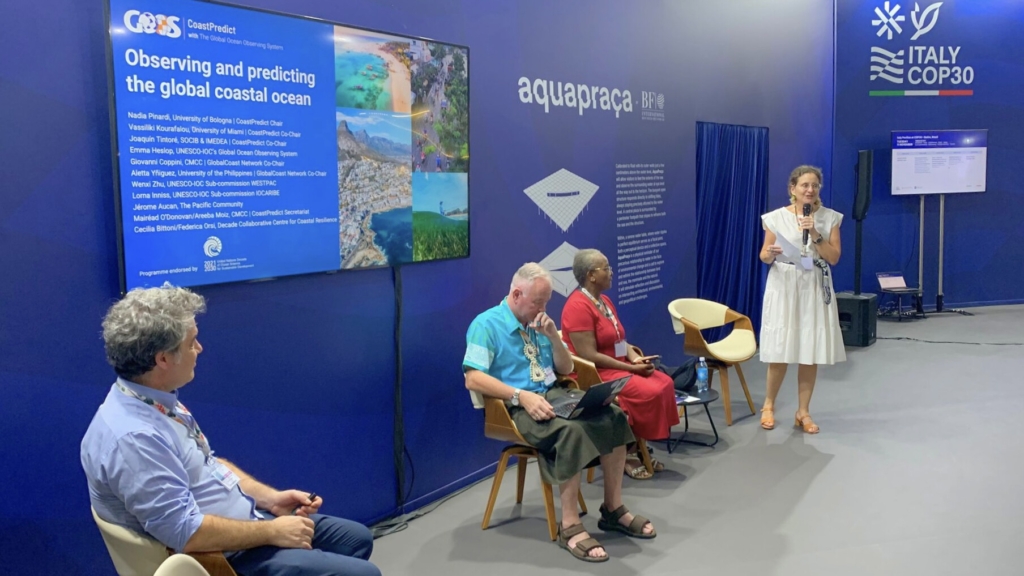
"Coastal Resilience to
Sea Level Rise"

"AI and ML for Earth System Modeling and Prediction"

special issue on
Climate Change and the Law

Future Earth Research School (FERS)
offers a unique opportunity for early-career researchers to meet and collaborate with international experts. Joining an FERS course provides participants with a great chance to share experiences on different multidisciplinary aspects of research while building a fertile ground for innovation and new research pathways.
A global, fresh-minded, community
FERS aggregates an international community of motivated, open-minded participants who are eager to deepen the scientific foundation that is needed to address the most advanced challenges of the future, to cultivate the necessary systemic and multidisciplinary approach, to improve their ingenuity to identify solutions and drive change.
Site visits, practical activities and seminars will be unique opportunities for young professionals, PhD students and post-docs to work together and share experiences.
The advanced knowledge network
FERS is a place where early-career scientists meet, discuss, and share ideas and perspectives from various backgrounds and disciplines. A rare plus is to have different ways of interacting with science processes and developing a systemic approach, vital to understanding and building the path toward a sustainable future.
Are you ready to deal with future challenges?
Sea-level rise, water management, floods and droughts, extreme events, risk management and reduction, the nature/technology gap, big data, equity and justice. Join FERS School to deepen your knowledge and anticipate future global challenges.
More than a community!
The courses offer an immersive and dynamic learning experience thanks to the support of an outstanding faculty, combining theory, practice and project works.
FERS ecosystem is a combination of innovation, education and development where participants are more than just classmates, having the possibility to build solid friendships and useful networks for future professional career.
Discover the innovators and professionals of the future!
Why Joining FERS?
FERS is an international high-level Research School. The training method comprises intensive training with networking and knowledge exchange, setting the stepping stone of professional relations to stay.
New course
AI and Machine Learning for Earth System Modeling and Prediction
Director: Aneesh Subramanian, William Chapman
Location: Bertinoro, Italy
SUMMER 2026
The Course “AI and Machine Learning for Earth System Modeling and Prediction” aims to explore the forefront of machine learning and artificial intelligence applications in Earth system science. With the exponential growth in climate data and advances in computational methods, this course offers students the opportunity to apply cutting-edge ML techniques to better understand, model, and predict the behavior of the Earth system.
New course
Coastal Resilience to Sea Level Rise
Director: Begoña Pérez Gómez, Giulia Galluccio,
Villy Kourafalou
Location: Online & Bertinoro, Italy
WINTER 2025
The “Coastal Resilience to Sea Level Rise” course offers a comprehensive and interdisciplinary in-depth analysis of the physical, environmental, and socio-political dimensions. It explores the driving physical processes, the human and ecological impacts as well as the challenges and solutions associated with Sea Level Rise and risk assessment. The adaptation strategies and plans together with capacity in communicating to stakeholders, and sea level risks will be part of the course.
The course is delivered together with OceanTeacher Global Academy (OTGA) e-learning platform.
Past course
Carbon Dioxide Removal for a Net-Zero Future
Director: Soheil Shayegh
Location: Bertinoro, Italy
SUMMER 2025
The “Carbon Dioxide Removal for a Net-Zero Future” course introduces the concept of negative emissions and carbon dioxide removals (CDR). It provides a basis for understanding the pros and cons of deploying CDR to keep global warming below the temperature targets set by the Paris Agreement. It introduces key categories of CDR technologies (Water-based vs. land-based, and technology-based vs. nature-based), and provides an overview of their technical and economic aspects. It then explores CDR public perception and the legal and governance issues around the uptake of CDR. It discusses the need for developing international frameworks for rigorous monitoring, reporting, and verification (MRV) of CDR options.
Past course
Data-Driven Modelling and Predictions of the Earth System
Director: Aneesh Subramanian
Location: Bertinoro, Italy
WINTER 2024
The “Data-Driven Modelling and Predictions of the Earth System” course is designed to equip graduate students with the essential tools and methodologies for understanding and interpreting the complex relationships within Earth system data. As the volume of climate-related data continues to grow, the challenge lies not only in managing this data but in effectively utilizing it to uncover the underlying processes that drive climate dynamics. This course will offer a deep dive into the mathematical foundations of data-driven modeling, with a particular focus on techniques tailored for analyzing and predicting the behavior of complex dynamical systems.
Past course
Law, Finance, and Litigation: addressing climate change risks in Europe
Co-Directors: Enrico Buono, Giulia Gallluccio
Location: Bertinoro, Italy
AUTUMN 2024
Climate change is a major threat to human well-being, posing risks to social and legal normativity, as well as challenging the current configuration of institutional structures. In this sense, legal frameworks and socio-political arrangements have addressed the adverse effects of climate change through norms, financial mechanisms, and litigation. Against this background, this course will provide an overview of the legal instruments and financial mechanisms aimed at regulating climate change, its risks and future consequences in Europe.
Past Course
Sea Level Rise and Coastal Adaptation
Director: Begoña Pérez Gómez
Location: Bertinoro, Italy
AUTUMN 2023
Sea level rise is one of the most pressing challenges posed by climate change, with significant implications for coastal communities around the world. This comprehensive course on “Sea Level Rise and Coastal Adaptation” provides a deep understanding of the causes and impacts of rising sea levels, delving into the consequences on coastal regions including intensification of extreme events, increased coastal erosion, inundation of low-lying areas and heightened vulnerability to storm surges.
Past Course
Data science and machine learning for climate research
Director: Stefan Klus
Location: Bertinoro, Italy
SUMMER 2023
While we keep collecting and storing data over data, understanding and interpreting the underlying processes and relationships between different observations is still a challenge to tackle. The Future Earth Research School on “Data Science and Machine Learning for Climate Research” will provide participants with a comprehensive overview of the mathematical foundations of machine learning, with a particular focus on methods for analysing complex dynamical systems. Topics of interest include model reduction, system identification, estimation of associated transfer operators such as the Koopman operator, control, uncertainty quantification, deep learning, and applications in climate science and sustainability.
Past Course
Adaptation and sustainable
risk management
Director: Daniela Jacob
Location: Bertinoro, Italy
AUTUMN 2022
The ever-growing effects of climate change are for all to see. Especially in recent years extreme events such as heat waves, heavy rains and floods are becoming more frequent. Based on the results of the IPCC, it is clear that in some regions of the world, there would be fewer extreme climate events if global warming could be limited to 1.5 °C instead of 2 °C by the end of this century. The goal of the course was for participants to understand how risks occur and how they can be assessed and managed to focus on the interaction between the physical and human environment and how risks are shaped by their interactions. This requires understanding both physical and geographical processes and economic and human development under climate change.
Past Course
Water Resources,
Land-use and Forestry
Director: Alberto Montanari
Location: Bologna, Italy
SUMMER 2022
The sustainable management of water resources, land and forestry is a key challenge for humanity in the 21st century that is tightly related to the UN sustainable development goals. The nexus between water and ecology is essential to sustainability, economic and environmental development and the well-being of humanity. The growing desire for higher living standards and the concurrent environmental changes – particularly climate change – requires a forward-looking and transdisciplinary approach to managing water and environmental resources. In particular, an innovative approach to adaptation to climate change is required to close the gap between climate change scenarios, policy-making and technical design of adaptation strategies.




